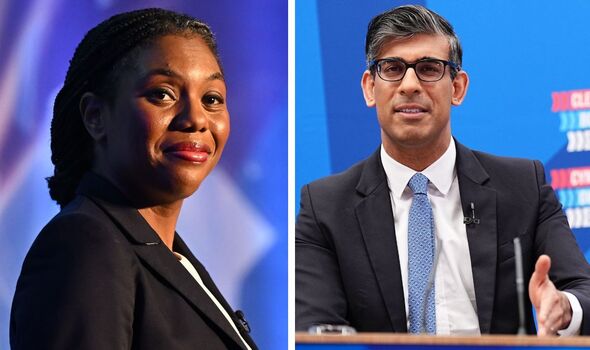The recent clash between “Doctor Who” star David Tennant and UK government minister Kemi Badenoch has sparked significant public interest and debate. Tennant’s remarks at the British LGBT Awards and the subsequent responses from Badenoch and Prime Minister Rishi Sunak have highlighted ongoing tensions regarding LGBTQ+ rights in the UK. This article delves into the details of the controversy, the key figures involved, and the broader implications for LGBTQ+ advocacy.

David Tennant’s Speech at the British LGBT Awards
The Context of the Awards
David Tennant was honored as a celebrity ally at the British LGBT Awards, a prestigious event that celebrates individuals and organizations making significant contributions to the LGBTQ+ community. Tennant, known for his role in “Doctor Who,” used his acceptance speech to address issues affecting the LGBTQ+ community.
Tennant’s Remarks
In his speech, Tennant expressed frustration that supporting LGBTQ+ rights should warrant special recognition. He stated, “If I’m honest, I’m a little depressed by the fact that acknowledging that everyone has the right to be who they want to be and live their life how they want to live it as long as they’re not hurting anyone else should merit any kind of special award or special mention, because it’s common sense, isn’t it?” Tennant went on to criticize Kemi Badenoch, saying he wished she would “shut up” and hoped for a future where she “doesn’t exist anymore,” clarifying that he did not wish her harm but rather wanted her divisive rhetoric to end.
Kemi Badenoch’s Response
Badenoch’s Controversial Views
Kemi Badenoch, a prominent figure in the Conservative Party, has been a polarizing figure in the debate over LGBTQ+ rights. Her past comments, including referring to trans women as “men” in a secretly recorded meeting, and her stance against banning conversion therapy, have drawn significant criticism from LGBTQ+ advocates.
Reaction to Tennant’s Comments
Badenoch responded to Tennant’s speech on social media platform X, stating, “I will not shut up. I will not be silenced by men who prioritize applause from Stonewall over the safety of women and girls.” She accused Tennant of being “blinded by ideology” and highlighted her position as the only black woman in government, framing Tennant’s comments as an attack on her existence.
Prime Minister Rishi Sunak’s Intervention
Sunak’s Statement
Prime Minister Rishi Sunak, who is facing potential electoral defeat in the upcoming general election, intervened in the controversy by defending Badenoch and criticizing Tennant. Sunak tweeted, “Freedom of speech is the most powerful feature of our democracy. If you’re calling for women to shut up and wishing they didn’t exist, you are the problem.”
Political Implications
Sunak’s intervention adds a political dimension to the debate, with his support for Badenoch potentially appealing to conservative voters while also alienating progressive constituencies. The Labour Party, which generally adopts a more socially progressive stance, has yet to issue an official response to the controversy.
Broader Implications for LGBTQ+ Advocacy
The Role of Celebrity Allies
David Tennant’s speech and the subsequent fallout underscore the influential role that celebrities can play in advocating for social issues. Tennant’s comments brought significant attention to the ongoing challenges faced by the LGBTQ+ community in the UK.
The Importance of Freedom of Speech
The clash also highlights the delicate balance between advocating for marginalized communities and respecting freedom of speech. While Tennant’s remarks were intended to support LGBTQ+ rights, they were perceived by some as an attack on Badenoch’s right to express her views.
Future of LGBTQ+ Rights in the UK
This controversy serves as a reminder of the ongoing struggles and debates surrounding LGBTQ+ rights in the UK. As society continues to grapple with these issues, public figures, policymakers, and citizens must engage in respectful and constructive dialogue.




